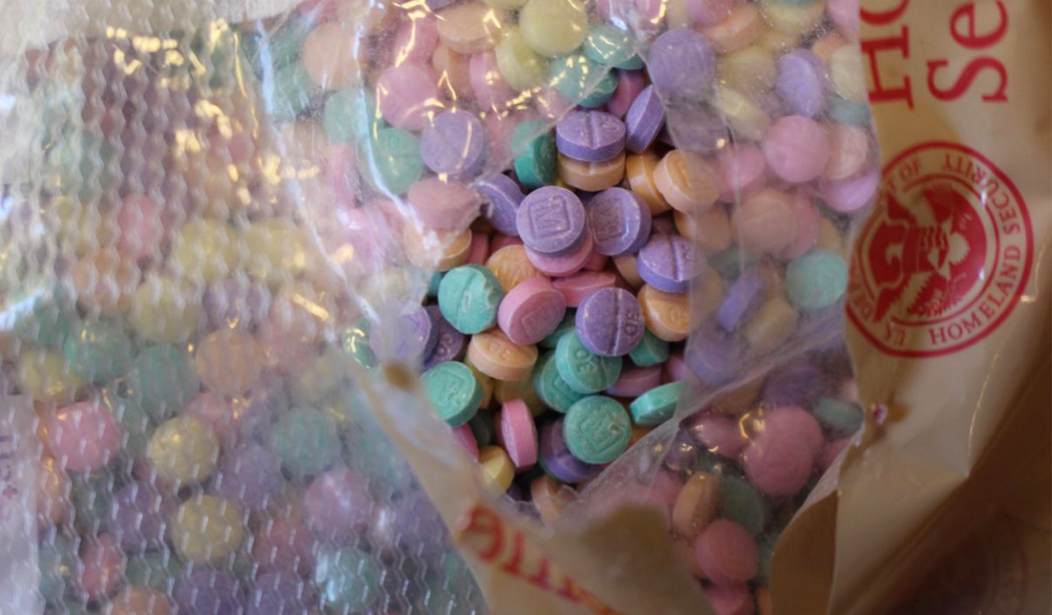The migrant crisis has spelled disaster for far too many American families. Apart from the rapid influx of asylum seekers and illegal immigrants, the smuggling of fentanyl over the southern border has wreaked havoc on communities across the country. The opioid has taken tens of thousands of lives as Mexican drug cartels have taken advantage of our porous border situation.
The Biden administration has been unable – or unwilling – to take strong action to secure the border, meaning that, unfortunately, many more will suffer as the cartels act with impunity. But some have suggested that designating Mexican drug cartels as terrorist organizations might give the federal government more tools to stop them from continuing to poison Americans, many of whom are not aware they are taking fentanyl that has been trafficked into the country.
A group of six Republican senators proposed legislation to label nine Mexican drug cartels as foreign terrorist organizations (FTOs). The proposal comes after weeks of tensions between some Republicans and Mexican President Andrés Manuel López Obrador, who has been trying to downplay Mexico’s role in the fentanyl crisis. The bill is titled the Ending the Notorious, Aggressive, and Remorseless Criminal Organizations and Syndicates (NARCOS) Act.
“Despite what the President of Mexico says, drug cartels are in control of large parts of Mexico,” said Sen. Lindsey Graham (R-SC) in a press release. “They are making billions of dollars sending fentanyl and illicit drugs into the United States where it is killing our citizens by the thousands.”
The bill proposes designating the Sinaloa Cartel, Jalisco New Generation Cartel, Gulf Cartel, Los Zetas Cartel, Northeast Cartel, Juarez Cartel, Tijuana Cartel, Beltran-Leyva Cartel, and La Familia Michoacana, also known as the Knight Templar Cartel, as FTOs.
However, Adam Isacson, director of defense oversight at the Washington Office on Latin America (WOLA), said a fixed list of designations could overlook smaller organizations that often change sides as larger cartels compete against each other. “This shows one of several arguments against adding cartels to the terrorist list: they fragment, disappear, reappear, and change names all the time. You’d have to update the ‘FTO list’ every few months or else it’ll just be a historical snapshot,” he added.
FTO designations permit the US government to sanction foreign organizations and make it illegal for anyone in the US to “knowingly provide ‘material support or resources’ to a designated FTO,” according to the State Department. Additionally, the designations prohibit members or representatives of the FTOs from entering the US and in certain cases result in the deportation of those individuals from the country, and freezing of the organizations’ assets within the US financial system. Sen. Graham believes the designations “will be a game-changer…a first step in the major policy changes we need to combat this evil.”
Earlier this month, Rep. Chip Roy (R-TX), along with 20 other GOP representatives, introduced a similar bill. “It’s long past time to designate these cartels as the terrorists they are and give U.S. authorities the tools needed to take them down. That’s why I started pushing the Trump administration for FTO designations during my first few months in Congress, why I introduced this legislation last Congress, and why I’m introducing it again,” the lawmaker said in a written statement.
Designating Mexican drug cartels as terrorist organizations would provide several benefits to the United States and its partners in the effort to solve the fentanyl crisis. Firstly, it would allow law enforcement agencies to use additional legal tools to combat the cartels’ activities. The designation would make the Foreign Narcotics Kingpin Designation Act (the Kingpin Act) applicable to the cartels, allowing the U.S. government to freeze their assets and prohibit U.S. citizens from conducting business with them. This would cut off their financial lifelines and hinder their ability to conduct their operations. In other words, it would hit the cartels in their pocketbooks.
Secondly, the designation would allow for greater coordination between the United States and other countries that have already designated the cartels as terrorist organizations. It would provide a legal framework for sharing intelligence and information on their activities, making it easier for international law enforcement agencies to work together in disrupting the cartels’ operations. This could hopefully lead to the dismantling of their networks and the capture of their leaders.
However, as Isacson suggested, there could be some potential drawbacks to such a move. One of the biggest risks is the possibility of retaliation and escalation of violence. Designating the cartels as terrorists could provoke retaliatory attacks against U.S. citizens and interests, as well as against Mexican citizens and government officials. This could lead to a cycle of violence that would further destabilize the region and make it more difficult to combat the cartels.
Another potential drawback is the negative impact it could have on U.S.-Mexico relations. The two countries already have a complicated relationship due to issues such as immigration and trade, and designating Mexican drug cartels as terrorist organizations could further strain their relationship. Mexico may view the move as an infringement on their sovereignty and an attack on their national interests, which could lead to diplomatic tensions and hinder cooperation in other areas.
But overall, I would argue designating Mexican drug cartels as terrorist organizations would provide a better way to protect Americans. Moreover, it is a legitimate function of the government, whose role is to protect our rights. Fentanyl coming from the southern border is typically laced into common street drugs, meaning most who die from it are not aware that they are ingesting it, which means the cartels are murdering American citizens by poisoning them with the opioid.
Applying the FTO designation to Mexican drug cartels would provide law enforcement agencies with additional legal tools, allow for greater coordination between international agencies, heighten public awareness of the severity of the drug problem, and send a strong message to the cartels that their actions will not be tolerated. It sounds like a good start. But will this administration be willing to do what it takes?
The opinions expressed by contributors are their own and do not necessarily represent the views of RedState.com.













